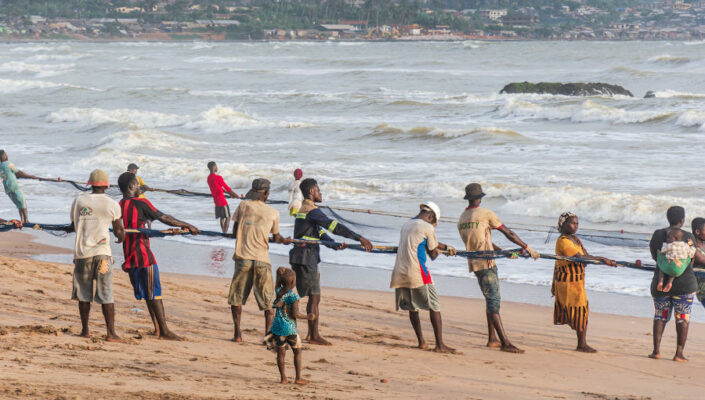
Fisherfolks in Ghana. Credit: Shutterstock
Published on January 27 2021, this blog discusses the One Ocean Hub’s integration of insights from law, political sciences and ecosystem services to develop a research agenda for addressing complex trade-offs in decision-making on the blue economy, such as economic growth and jobs creation versus livelihoods, the needs of industry and the needs of society (recognising that they may not be the same). The agenda emphasizes the importance of integrating human rights into ocean decision-making, ensuring societal inclusion in ecosystem understanding, and fostering multi-scale governance for sustainable coastal communities.
This blog post summarizes the key points made in a written submission that was produced collaboratively by Professor Elisa Morgera, Dr Sian Rees, Dr Holly Niner, Ms Mara Ntona, and Dr Senia Febrica to respond to a call for feedback by the European Union on Horizon Europe candidate partnership ‘A climate neutral, sustainable and productive Blue Economy’ Strategic Research and Innovation Agenda. The EU Blue Economy partnership is envisaged as a co-funded partnership under the Horizon Europe Research & Innovation (R&I) framework programme 2021-27. The submission made contributions on the following four pillars, according to which this post will be structured:
- A Blue Economy in harmony with nature;
- Blue Economy solutions towards climate neutrality;
- A Blue Economy for the people; and
- Integrated, responsible ocean governance.